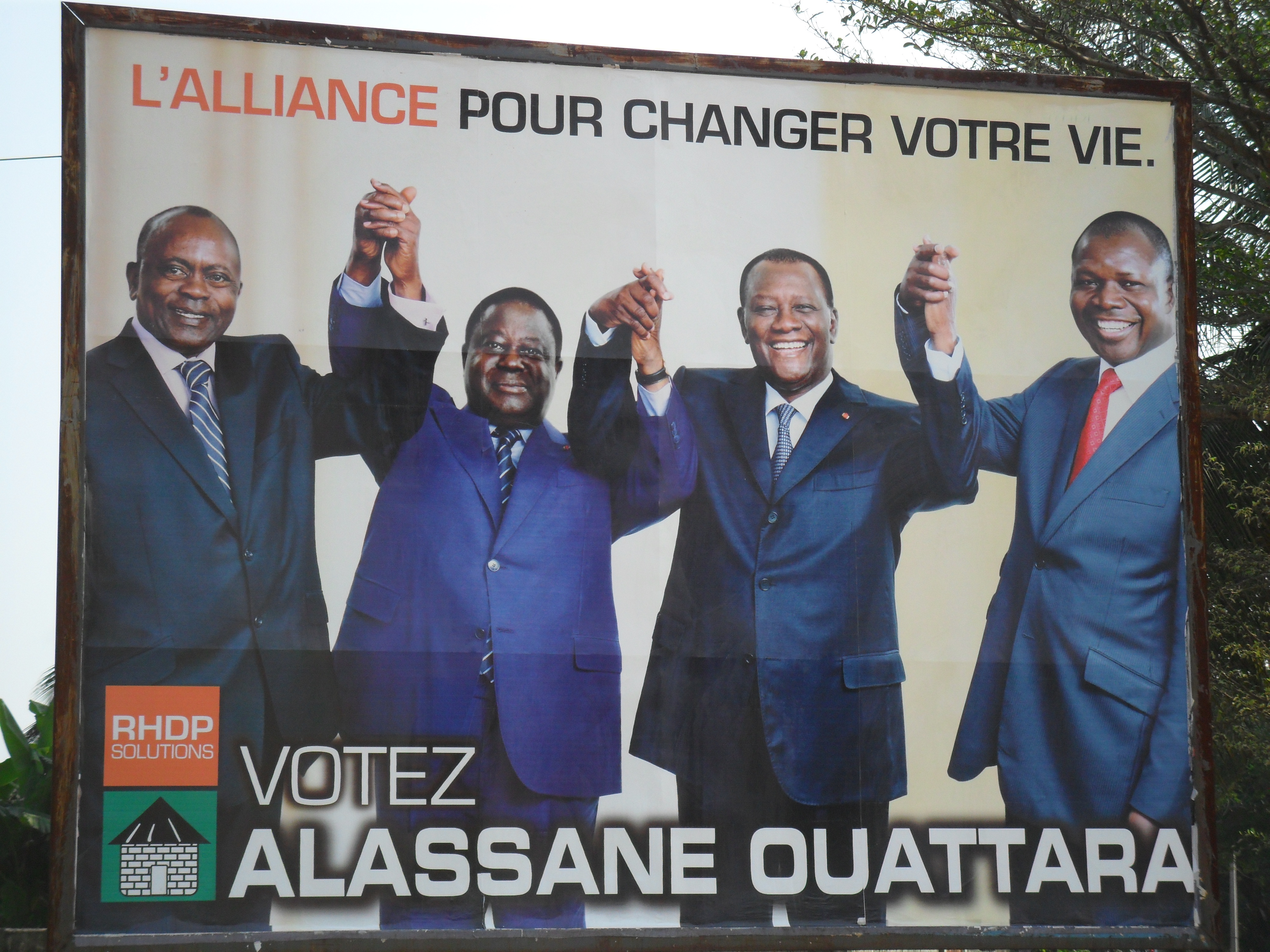Incumbent Laurent Gbagbo has not recognized provisional results announced by the Independent Electoral Commission (CEI) declaring Alassane Ouattara the winner of a 28 November run-off.
With a curfew still in effect since the day before the poll, the authorities on 2 December announced the closure of land and maritime borders and a block on international media broadcasts, triggering a fresh wave of rumours on how the current crisis might evolve.
Criticized for its lateness in releasing results, the CEI on 2 December declared that former prime minister Ouattara received 54 percent of the vote against 46 percent for Gbagbo. This confirmed earlier speculation, both within Côte d’Ivoire and abroad. Responding to the news, Ouattara talked of his “emotion and humility”, while hinting at the formation of a government of national unity. Meanwhile his supporters took to the streets in the commercial capital Abidjan and other cities, celebrating the victory.
But the announcement from CEI President Youssouf Bakayoko, delivered to the press from an Abidjan hotel rather than from the commission's headquarters, had already been pre-empted by the Constitutional Council. In a press conference covered by Ivoirian state television (RTI) shortly before the CEI declaration, Council president Paul Yao N’Dré noted the CEI’s failure to meet a three-day deadline on announcing results and said the Council would now take charge of the elections dossier, examining complaints and making a definitive adjudication within seven days. While international TV and radio outlets ran with Ouattara’s victory, RTI constantly relayed the Constitutional Council’s position, which has been firmly endorsed by Gbagbo’s Front Populaire ivoirien (FPI).
Gbagbo has demanded the annulment of results from four of Côte d’Ivoire’s 19 regions.
Amid appeals from human rights organizations, the UN, the United States, France and others for a peaceful electoral process, the CEI has found itself increasingly embattled and divided. On 30 November a Gbagbo official on the commission tore ballot papers from the CEI spokesperson's hands as the spokesperson was about to read out results. Each political bloc has accused the other of engaging in strong-arm tactics, before and after the elections, the allegations taken up by a fiercely partisan print media.
Many in and outside the country have long anticipated that Gbagbo would resist defeat.
“It appears the hardliners in Gbagbo’s camp are taking the lead right now,” Rinaldo Depagne, senior West Africa researcher with the International Crisis Group, told IRIN. “I don’t see him giving an inch.” Depagne said the political situation in Côte d’Ivoire was completely blocked and violence was taking over.
|
Photo: Monica Mark/IRIN  |
| An Alassane Ouattara supporter in Abidjan |
“They broke down the door and just started shooting,” a 32-year-old man who survived the attack told IRIN. “They tore posters of Ouattara down hollering, ‘It’s because of this crap that we are coming after you!’" According to other sources in Yopougon, a reprisal raid by Ouattara supporters on the Yopougon office of Gbagbo's party was thwarted by security forces.
Human rights organizations were quick to condemn the events in Yopougon. "We are extremely shocked," Marie Paule Kodjo of Coordination des Femmes pour les Elections et la Reconstruction post-crise told IRIN. “We have been running an awareness campaign, encouraging people to stay calm in the period leading up to the announcement of results and then you get something like this."
Kodjo said that the delay in announcing results has led to a period of stress and “a climate of insurrection”. She said the circumstances following the run-off had left people confused as to what was happening, and that much depended on political leaders showing maturity and moderation. “The loser must offer his congratulations to the winner and leave it at that," she said. She expressed particular concern about youth clashing in the streets.
Civil society youth activist Essoh Joma Serges said further violence cannot be ruled out. “When you’ve got the electoral commission saying one thing and the Constitutional Council another, and you’ve already got Ouattara supporters in the streets, imagine what could happen.”
Abidjan residents spoke on the phone in hushed tones and many living in volatile areas have left their homes to stay with friends or relatives elsewhere.
In the absence of an Ivorian internal settlement, it is not clear how the international community can exercise leverage. Following the CEI’s announcement of results, the UN Security Council in New York, through US Ambassador to the UN Susan Rice, reiterated its “readiness to take the appropriate measures against those who obstruct the electoral process”. Senior diplomats in Abidjan have reportedly been focusing attention on the Constitutional Council but a clear action plan has yet to emerge.
mm/cs/np
This article was produced by IRIN News while it was part of the United Nations Office for the Coordination of Humanitarian Affairs. Please send queries on copyright or liability to the UN. For more information: https://shop.un.org/rights-permissions





